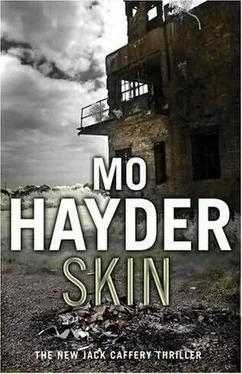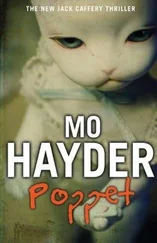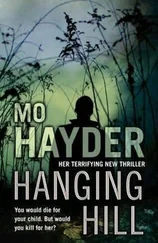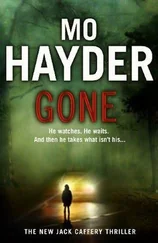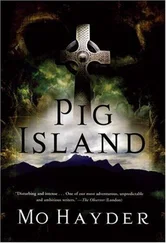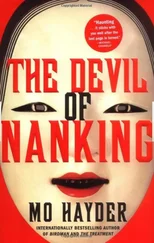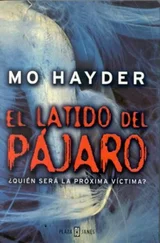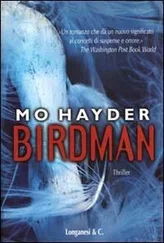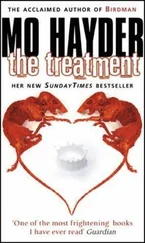The Walking Man.
He’d heard Caffery’s car but he didn’t look up, just sat nonchalantly next to the fire, scratching his oily beard and staring into the flames as if they’d been telling him a story and now he was giving it some thought. His belongings were arranged around him, lit red by the crackling fire: his sleeping-bags, his all-weather gear, his plastic bottles of cider. Two plates sat ready for the food he was cooking in the pot. Two plates, Caffery noticed. Not one. He was expected. This was the way with the Walking Man. It wasn’t possible to just find the Walking Man: he decided when the time was right, then – as if their shared histories chimed on some element – exerted a casual magnetism on Caffery. He threw out an invisible lariat and drew him in.
He got out of the car, taking the two-litre flagons of cider with him.
‘Took a long time to find me,’ said the Walking Man, as Caffery approached. He took good care of his feet and his clothing was expensive outdoors gear, but to look at him you’d think he’d been soaked in tar: he was black from head to toe as if he slept in the charcoal of his campfires. ‘You’ve been looking for me for two hours now.’
‘How do you know that?’ Caffery said, though it didn’t surprise him.
The Walking Man didn’t answer. He stoked the fire and edged the tin plates closer to the flames. Caffery set down the cider. The Walking Man had more than two million pounds tucked away in a savings account somewhere yet he drank scrumpy cider, the worst the local apple presses could cough out. And he never, ever slept under a roof. It was just his way.
‘I’ve plotted your routes on a map.’ Caffery unrolled the piece of bed foam the Walking Man had waiting for him, warming next to the fire. ‘I can see the beginnings of a pattern.’
The Walking Man snorted. ‘Yes. Of course you’d feel the need to study me. You’re a policeman.’
‘I’ve got an intelligence database to help me. When people see you they call in the sighting.’
‘Because they’re scared of me.’
‘They know what you’re capable of.’
Craig Evans, the killer of the Walking Man’s daughter, had been only half alive at the end of the torture. They had him down as DOA in the ambulance. And when they’d patched him up and seen what the Walking Man had removed from him, most of the professionals thought privately he’d have been better off dead. With no eyes, no genitals, it wasn’t going to be the best of lives. It would have been better for Penderecki to end like that. But he hadn’t. Instead he’d stolen the chance and killed himself by hanging from a ceiling beam in his bathroom. The lost opportunity stung Caffery even now.
‘I gave you some crocus bulbs the other night. Been asking myself about them. What’s going to happen to them?’
‘They’re here.’ The Walking Man patted his breast pocket. A small rustling noise came through the night. ‘Safe in here.’
‘When are you going to plant them?’
The Walking Man looked up. His eyes were the same colour as Caffery’s: dark blue ringed with dark eyelashes. ‘When the time is right. And how do you know I haven’t already planted some? I won’t be asked about it by you again. Jack Caffery. Policeman.’
Caffery gave a wry half-smile. He was used to this from the Walking Man. He was starting to understand how it worked, that things would be explained in their time. While the Walking Man attended to the food Caffery uncorked the cider, poured for them both in tin cups and leant back on the bedroll, one hand drifting up to finger the gap in his hair. The night settled around them. The sounds of the river gurgling and rolling its way through the fields, the clicking of his car engine cooling. The faint electronic buzz of a weir further downstream. About fifty feet away someone, some kids maybe, had hooked a tyre on a rope from a tree that leant out over the river. It hung motionless in the starlight, the ghosts of all the children who had swung from it over the years, the yells and the laughter and the crashes of water, swarming silently around it.
‘You saw it, didn’t you?’ Caffery said, after a while. ‘The last time I came to you it was there. It wasn’t my imagination – there was something watching me from the trees.’
The Walking Man grunted. ‘Yes. There was.’
‘You weren’t scared of it.’
‘Why would I be? It wasn’t coming for me.’
‘And if it was? If you were me? Would you be scared then?’
The Walking Man was quiet for a while, thinking about this. He spooned the food on to the tin plates and added fresh herbs collected during the day, maybe from private gardens he’d crept into. The food next to this campfire was some of the best Caffery’d ever had, straightforward, always steaming hot. The Walking Man distributed it between them and added forks, pushing one plate to him.
Caffery took the plate, and repeated, ‘Would you be scared?’
‘I don’t know.’ He sat down and paused for a moment, letting the steam from the food come into his nose, holding his mouth open like a dog tasting a scent. ‘Are you?’
‘I don’t know what it – he – wants. I don’t know what he’s capable of.’
The Walking Man took a forkful of food and looked slyly at Caffery, half smiling.
‘What? Why’re you smiling?’
The Walking Man pointed his knife at him. ‘I’m smiling at you. And at the way you can’t let anything go. The way you treat your job as your penance.’
‘My penance ? My penance for what?’
‘You know.’
‘Are you talking about Ewan again?’
‘Of course I’m talking about your brother. You’re still paying penance for the way he died and you didn’t. The penance your mother always wanted from you. And this is the main way you find to stay dead.’
Only a few days ago the Walking Man had told Caffery he had a chance to choose between living and dying. He’d said he could continue to pursue Ewan, the child who had gone, by continuing to pour everything into his work. Or he could pursue ‘the child that could be’. The child that could be. Caffery had pondered those words over and over again in the last few days. There were no kids in his life and never would be. It was stamped on his heart. Better to never have them than to risk losing them.
‘When you’ve got a child there is a line from you to the child that exists for ever and cannot be broken. At the moment the only child Jack Caffery has a line to is a dead one. Therefore your link is to death. But you know and I know – we both know – for you there could be a child who lives. Stop looking at death, Jack Caffery.’ The Walking Man wiped the plate with his finger and licked it carefully. He put it down and looked first up at the stars, then thoughtfully into the trees as if something was there, something come to watch them both. ‘If you stop looking at death, death will stop sending out its handmaidens to find you.’
The room is warm so the man is naked. It’s easier this way. Not so much mess. He stands at a workbench, busily dismantling a rabbit. He pulls the skin away from the flesh until it is attached only at the feet, the tail and the head. Then, using a heavy Damascus-steel cleaver, he takes off its paws and tail.
Skinning an animal takes less effort than skinning a human. It’s to do with the fact that there’s so little fat in the subcutaneous layer of the animal.
He cuts into the rabbit’s neck until the vertebrae are revealed, like small, smeared teeth. Then he uses a quick twist to snap the backbone and the head free, and pulls away the tiny coat with its weighted ends. Poking it with a finger he rubs it so the outer and inner silvery fascias slip up and down against each other. Then he bends over and sniffs, letting the smell rise through his nostrils and lodge in the back of his throat. It’s a simple smell, woody and tart. It’s nothing, nothing, like the smell of human skin.
Читать дальше
